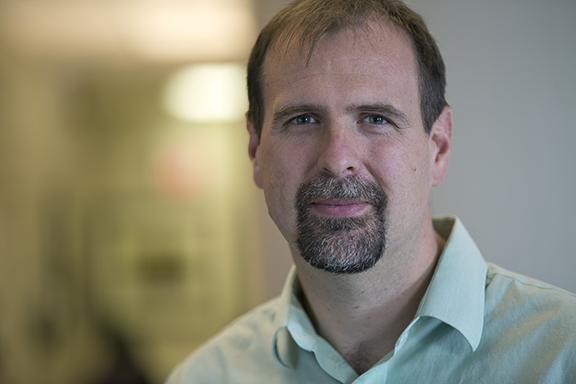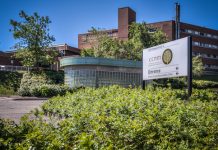Based on its success, it is hard to believe that The Marsden Center of Naturopathic Excellence (MCNE) has only been opened for 5 years. The clinic is managed by Dr. Eric Marsden, ND. During his education, Dr. Marsden had the opportunity to travel to Germany once to twice a year over a period of about 10 years. In this process, he witnessed first-hand integrative cancer care and he got really excited about applying it in Canada. He even remembers visiting hospital floors where there were high-end diagnostics on one end and then rooms for naturopathic treatments on the other. The atmosphere and the quality of care was inspiring. The lack of awareness of these integrated approaches in Canada was also a strong motivating factor for him. The clinic was created as a result of these experiences, as Dr. Marsden wanted to build a space capable of providing that high level of care. He also wanted to bring the some of the more advanced diagnostics to the naturopathic profession. He wanted to facilitate access to quality care patients and practitioners.
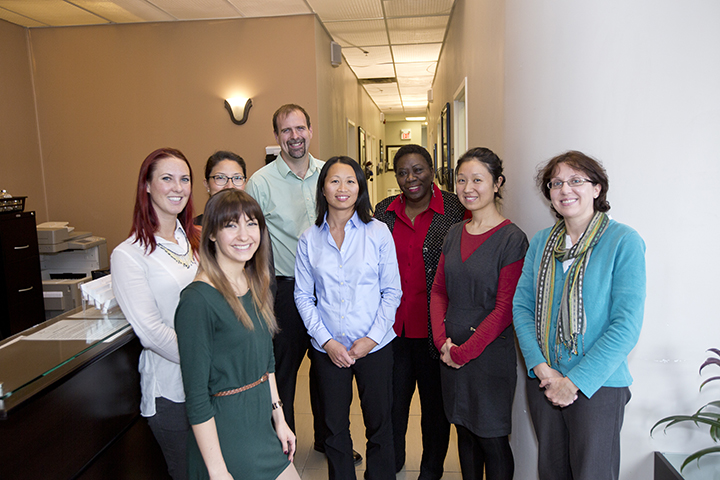 The clinic is an impressive 6000 square feet in total and services up to 200 patient visits a week. There are 7 treatment rooms, a full laboratory, an infusion therapy suite (where 8 chairs are available for IV therapy), a hyperthermia treatment suite, a professional dispensary, a tea room and organic café, meeting and lecture space, and administrative offices. Dr. Marsden believes that the clinic’s advanced therapeutics make a major difference for patients. MCNE offers loco-regional hyperthermia (they are one of only 4 clinics in Canada that offer this). They also offer mistletoe therapy (Dr. Marsden actually brought Helixor to Canada). The clinic has patients that come from the United States who request it. In addition to these therapies, the clinic is always on the cusp of infusion therapy.
The clinic is an impressive 6000 square feet in total and services up to 200 patient visits a week. There are 7 treatment rooms, a full laboratory, an infusion therapy suite (where 8 chairs are available for IV therapy), a hyperthermia treatment suite, a professional dispensary, a tea room and organic café, meeting and lecture space, and administrative offices. Dr. Marsden believes that the clinic’s advanced therapeutics make a major difference for patients. MCNE offers loco-regional hyperthermia (they are one of only 4 clinics in Canada that offer this). They also offer mistletoe therapy (Dr. Marsden actually brought Helixor to Canada). The clinic has patients that come from the United States who request it. In addition to these therapies, the clinic is always on the cusp of infusion therapy.
The team at MCNE utilizes a thorough and unique set of diagnostics. They have unique German devices that allow for bio-electronic terrain assessment (this measures things like pH, redox potential, and resistivity). They also do microscopy, bio-impedance analysis, as well as basic tests like ECG and spirometry. There use two special labs from Germany, Maintrac and BioFocus. Maintrac provides a method of quantifying circulating tumour cells within a sample of blood. It can be used as a tool for prognosis and for preventive protocols. The doctors at MCNE see a direct clinical relation. BioFocus provides genetic characterization. They isolate the circulating tumour cells and do gene testing on them, which may help to identify if certain therapies may be particularly helpful. In terms of Canadian providers, the team at MCNE uses CELLSEARCH®, a Health Canada approved diagnostic platform. In particular, they use it to see if a treatment is working. It may change prognosis, but is also useful for analyzing quality of life. The team at MCNE have a lot of combined experience and have treated rare cancers.
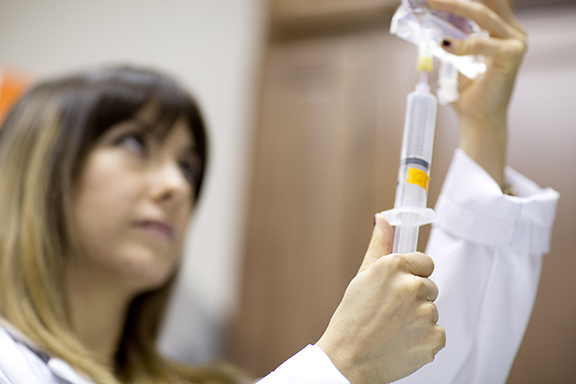 All of their medical information is linked into their electronic medical records system. They use a company that allows them to do some data mining. The same system (Accuro®EMR) is used by many medical doctors. All patients are ICD-coded. Dr. Marsden hopes that they will be able to link into OLIS, the central lab system for Ontario. The eventual goal is that if there are prescription changes made for patients, all practitioners will be made aware of it. It will also allow for the centralization of patient data. MCNE is one of the few clinics where there is a standardized approach to cancer patients. They look at where patients are in the disease pathway and what that means in terms of the treatment goals. They analyze what this means in terms of the therapeutics that they can administer (especially if concunrently with conventional approaches). The result is that the clinic provides a better standard care for patients. They actually evaluate and quantify their treatments to clearly establish how effective they are, not only on the whole, but also for each individual patient.
All of their medical information is linked into their electronic medical records system. They use a company that allows them to do some data mining. The same system (Accuro®EMR) is used by many medical doctors. All patients are ICD-coded. Dr. Marsden hopes that they will be able to link into OLIS, the central lab system for Ontario. The eventual goal is that if there are prescription changes made for patients, all practitioners will be made aware of it. It will also allow for the centralization of patient data. MCNE is one of the few clinics where there is a standardized approach to cancer patients. They look at where patients are in the disease pathway and what that means in terms of the treatment goals. They analyze what this means in terms of the therapeutics that they can administer (especially if concunrently with conventional approaches). The result is that the clinic provides a better standard care for patients. They actually evaluate and quantify their treatments to clearly establish how effective they are, not only on the whole, but also for each individual patient.
MCNE offers a residency program. It includes 2 residents on at one time and they stagger it so that each year they bring on a new practitioner. This allows for a mentorship component, so that the senior resident can help with education and training of the junior resident. Many residents stay to practice as associates after their residency. Some practitioners on the team will specialize after (Dr. Lee for example has a strong emphasis in Traditional Chinese Medicine, so does all the acupuncture and related intakes). The residents do all the infusions and manage new patient assessments. The goals for the residents are to understand the foundations of cancer care and environmental medicine. In the second year of residency, the focus is on case management. All of the practitioners try to work together and usually there will be one practitioner who will lead a patient’s care based on their specialty training. For example, a team member may have a consult with the primary doctor’s patient directly or engage in collaborative case management with the primary doctor.
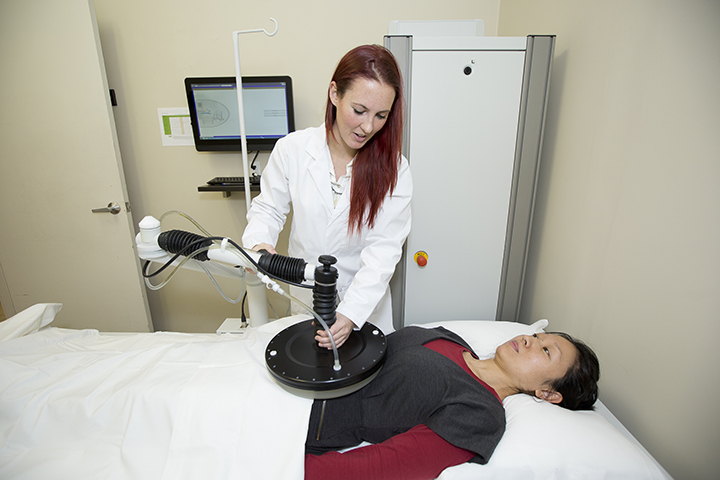 The biggest challenge for MCNE is the integration of care. They have a difficult time implementing a collaborative and cooperative approach with others. “We try our best,” says Dr. Marsden. “Medical doctors, oncologists, and naturopathic doctors all want what’s best for their patients. One big concern from doctors and specialists is that they are worried about the cost of treatment for the patients.” The other perceived obstacle is regulation: it has the potential to allow for more integration, but also has the risk of being restrictive. To address the cost concerns, last year the MCNE performed $100,000 worth of subsidized treatments for patients. Remarkably, they are in the process of trying to create a charity in which all naturopathic doctors could access funds for their patients to receive care.
The biggest challenge for MCNE is the integration of care. They have a difficult time implementing a collaborative and cooperative approach with others. “We try our best,” says Dr. Marsden. “Medical doctors, oncologists, and naturopathic doctors all want what’s best for their patients. One big concern from doctors and specialists is that they are worried about the cost of treatment for the patients.” The other perceived obstacle is regulation: it has the potential to allow for more integration, but also has the risk of being restrictive. To address the cost concerns, last year the MCNE performed $100,000 worth of subsidized treatments for patients. Remarkably, they are in the process of trying to create a charity in which all naturopathic doctors could access funds for their patients to receive care.
Dr. Marsden and his team always try to be on the cutting edge of oncology research. They also have a very strong environmental medicine program. They believe it plays a more serious role in both primary and secondary prevention with regards to oncology. When asked if he has any messages for other doctors, Dr. Marsden says: “Integrative approaches to oncology are incredibly important. Cancer is the leading cause of death in North America. We don’t have it right. Even the most emergent therapeutics are only adding months to life. The fact of the matter is that we continue to look at cancer as a battle. We look at the cancer as our enemy and the patient as our battleground. Cancer is a whole body disease and it involves the regulation of the immune system. Treating rationally and effectively, while using therapies where there is good clinical evidence is the best way to go.” Dr. Marsden encourages his patients to be strong advocates for themselves. In the near future, the hope is that the clinic will be involved in a multi-center trial for cancer care. The team at MCNE hopes to publish more papers and to continue presenting their findings at conferences. They want to open doors to collaborate with cancer treatment centers in Ontario. “Because the stakes are so high in oncology, the rewards can be wonderful,” Dr. Marsden says. We would like to thank the team at MCNE for sharing their story with IHP.
Dr. Eric Marsden, BSc, ND – Clinic Director
Dr. Von Chaleunsouk Marsden, BSc, ND – Assistant Director
Dr. Rebecca Lee, Hon. BSc, ND
Dr. Ashley Chauvin, BSc, RTT, ND
Dr. Lei Gu, BSc, ND
Martha Sharpe, ND – Resident
Pamela Tarek, RHN
Hilda White – Reception
Barb Czapla – Reception
